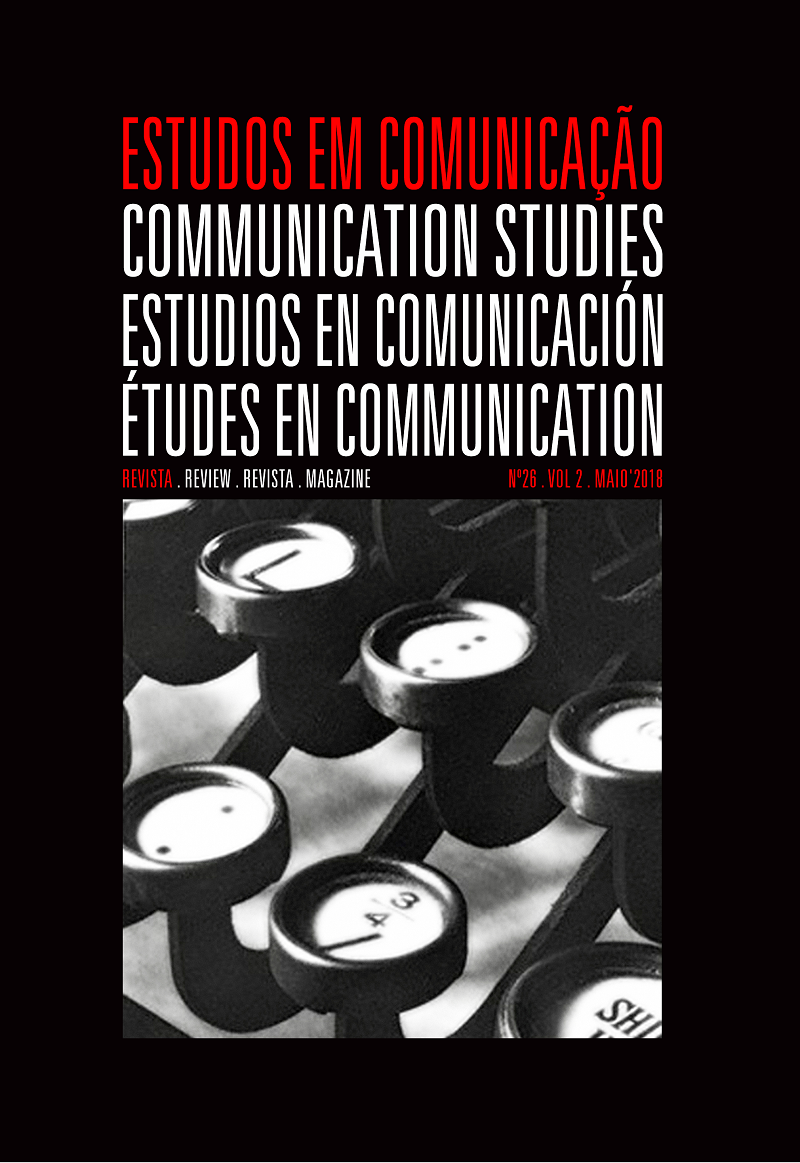Estratégias de interdições da comunicação: rupturas da democracia comunicada
Keywords:
communication, politics, philosophy, media, performance.Abstract
We present an analysis proposal on the hardships of political communication in the contemporary society amid a crisis of values and the emergency of radical stances in the mediatized public scenario. Our theoretical basis is the communicability relational notion, as developed from the works of philosophers John Dewey and Alfred Schultz, as well as the performance concept of sociologist Erving Goffman. In the intersection between Communication and Politics, we assessed the communicative strategies in a multilayered research on the cases of different public figures. The way different levels of communicability, both instrumental and final, are put to action in the interaction with audiences and the way it yields more ruptures than dialogues in the communicative democracy; otherwise, more interdictions than the conflicts that streamline the world of life.
References
Agamben, G. (2015). Meios sem fim – Notas sobre política. Belo Horizonte: Autêntica Editora.
Arendt, H. (1995). Verdade e política. Lisboa: Relógio D’Água Editores.
Braga, J. L. (2006). A sociedade enfrenta sua mídia. São Paulo: Paulus.
Braga, J. L. (2006). Sobre “mediatização” como processo de referência. XV Compós. Bauru/SP.
Carlson, M. (2009). Performance: uma introdução crítica. Belo Horizonte: Editora UFMG.
Correia, J. C. (2005). A teoria da comunicação de Alfred Schutz. Lisboa: Livros Horizonte.
Correia, J. C. (org) (2002). Comunicação e poder. Covilhã/Portugal: Universidade da Beira Interior.
Dewey, J. (1950). Logica. Teoría de la investigación. México: Fondo de Cultura Econômica.
Dewey, J. (1929). Experience and nature. London: George Allen And Unwin.
Franco, A. de & Pogrebinschi, T. (orgs.) (2008). Democracia cooperativa – escritos políticos escolhidos de John Dewey. Porto Alegre: EDIPUCRS.
Goffman, E. (1959). The presentation of self in everyday life. New York: Doubleday Anchor Books.
Goffman, E. (1974). Frame analysis: an essay on the organization of experience. Londres: Harper and Row.
Joas, H. (2002). Creatividad, acción y valores. México: Universidad Autónoma Metropolitina; Unidad Iztapalapa.
Mead, G. H. (2008). La filosofia del presente. Madrid: Centro de Investigaciones Sociológicas.
Oliveira, P. P. (2014). Contribuições do pragmatismo e da fenomenologia social para um roteiro de análise da globalidade do processo comunicativo midiatizado. In B. D. Moreira (org.), Interfaces sociais e textualidades midiáticas. Cuiabá, MT: EdUFMT.
Oliveira, P. P. (2017). From Schutz to Dewey: communication and everyday life. Revista Estudos em Comunicação, 1(25), 163-175. Doi: 10.20287/ec.n25.v1.a10.
Pogrebinschi, T. (2005). Pragmatismo – Teoria social e política. Rio de Janeiro: Relume Dumará.
Quéré, L. (2003). Le public forme et comme modalité d’experiencie. In D. Cefai & D. Pasquier (orgs.), Les sens du public. Publics politiques, publics médiatiques (pp. 113-133). Paris: Presses universitaires de France.
Schechner, R. (2006). What is performance?. In Performance studies: an introduction, second edition (pp. 28-51). New York & Londres: Routledge.
Schutz, A. (2012). Sobre fenomenologia e relações sociais. Petrópolis (RJ): Vozes. Simmel, G. (2008). De la esencia de la cultura. Buenos Aires: Prometeo Libros. Strauss, A. L. (1999). Espelhos e máscaras: a busca da identidade. São Paulo: Edusp.
Downloads
Published
Issue
Section
License
Estudos em Comunicação/Communication Studies is an Open Access journal. All its content is freely available without charge to the user or his institution. Users are allowed to read, download, copy, distribute, print, search, or link to the full texts of the articles in this journal without asking prior permission from the publisher or the author. Estudos em Comunicação, by Labcom, is licensed under a Creative Commons Atribuição-NãoComercial-SemDerivações 3.0 Unported License. By submitting your work to Estudos em Comunicação/Communication studies you confirm you are the author and own the copyright, that the content is original and previously unpublished, and that you agree to the licensing terms.


